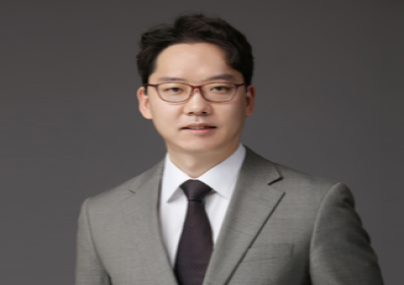
Japan’s capital city has been an underutilised seat, especially compared to Asian peers Singapore and Hong Kong, and even Seoul and Kuala Lumpur have seen a rise in prominence. But with a new international arbitration facility in the offing, that could very well change.
It’s been another good year for international arbitration in Asia, with the leading Asian venues Singapore and Hong Kong not resting on their laurels and keeping up to date with the latest international developments, and South Korea’s Seoul and Malaysia’s Kuala Lumpur continuing their rapid growth.
But one Asian powerhouse has not made noticeable progress compared to its size and stature, and not just the past year but several years: Japan.
Despite being the world’s third-largest economy and home to leading companies that uses international arbitration, Japan and its capital city Tokyo have been barely in the discussions about the rise of international arbitration in Asia.
There are several reasons behind the anaemic state of arbitration in Tokyo. For starters, arbitration – or any dispute resolution for that matter – is not popular in Japan as historically Japanese companies are dispute-averse.
“The Japanese actually settle out of court – they don’t like the courts,” says Haig Oghigian, senior counsel at Squire Patton Boggs in Tokyo, focusing on international dispute resolution. “But if they had to choose, they would choose the Tokyo District Court over going to international arbitration hearing. So the cultural problem is not just arbitration versus court, it’s just any kind of dispute – they want to try and settle any kind of dispute.”
With a culture so reluctant to litigate, the country and its lawyers were never really up to speed with arbitration. “There are very few Japanese lawyers who are knowledgeable or experienced in international commercial arbitration,” notes Oghigian. “And of course, most clients are even less knowledgeable. So when a client asks about a potential dispute to use court or arbitration, typically arbitration is not recommended because there’s a general unfamiliarity with it.”
LITTLE SUPPORT
Japan needed someone to take the lead to boost arbitration, but it didn’t come from the government, which has noticeably been less active compared to other Asian venues.
“Obviously with Singapore and Hong Kong, it’s very well known that they have had massive government support for arbitration; likewise there’s the judiciary in both countries that are very well-versed in arbitration matters and really push to get ahead of the developments in this area,” says Benjamin Jolley, a senior associate at Herbert Smith Freehills in Tokyo.
“And although we understand the Japanese government is keen to promote arbitration in Japan, historically arbitration in Japan hasn’t had the same level of support that it has had in Singapore and Hong Kong.”
“I think likewise, the Japan Commercial Arbitration Association (JCAA) may find it difficult to provide the same level of support in promoting arbitration in Japan as other institutions do internationally,” he adds.
Jolley shares the examples of institutions like the International Chamber of Commerce (ICC), Singapore International Arbitration Centre (SIAC) and Hong Kong International Arbitration Centre (HKIAC) as having a bigger marketing budget and are more visible internationally. “We see those institutions regularly in Tokyo marketing to Japanese users,” he notes. “As far as I understand, I don’t think the JCAA is going out and marketing that much to users of arbitration in countries outside of Japan.”
It also didn’t help that there was a misconception about the perceived bias towards the Japanese party. “It’s less so now, but there used to be a misconception that doing arbitration in Japan would not necessarily be an even playing field,” says Oghigian. “There was a series of articles written in the U.S. about how the JCAA are pro-Japanese. That is now pretty much proved to be incorrect.”
But there have been a couple of court cases that haven’t been pro-arbitration by Japanese courts, he adds. The arbitration community is anticipating the ruling of the first arbitration case taken by the Supreme Court of Japan later this month or early January, which will set to have an impact.
“If it goes against the modern trends of arbitration, I think that’s going to put a wet blanket on any kind of international arbitration here,” he notes. “There are people that will be justifiably sceptical about whether or not Japan is the right place to do arbitration.”
There are also smaller but significant factors that don’t help its cause. Language barriers, for one, with English being the language of international business and the common language for international parties, the court decisions around arbitrations in Japan are published only in Japanese – a language really only used in the island country.
“Decisions are not translated freely or made available in English, and there are not as many court judgments on arbitration as there are in Hong Kong and Singapore,” says David Gilmore, Herbert Smith Freehills’ Tokyo managing partner and dispute resolution head in Japan.
In contrast, South Korea, whose English language skills are of a similar (low) level as its East Asian neighbour’s, has done something about it. “I understand that in Korea, for instance, there’s a project where the SIDRC translates all relevant arbitration decisions of the Korean courts into English precisely for these reasons, and that would be a positive step to take here as well,” notes Gilmore.
Another to add to the list is the suitability and cost of arbitration facilities, which, perhaps less so for clients, are an important factor for practitioners.
“Often in Japan you had to look at the big international hotels, and until recently those hotels haven’t always been interested in this sort of business or prepared to let you have facilities 24 hours a day for a week or two,” says Gilmore, adding that the relative cost of booking an international hotel in Japan compared to Maxwell Chambers is easily twice as much.
There’s also the lack of clarity regarding the rules for arbitration, particularly about which lawyers can represent clients.
In theory, based on what is called a bengoshi law – laws that govern the activities of Japanese lawyers –only Japanese qualified lawyers can charge professional fees for providing legal advice. But at the same time, the gaiben law – the law that governs foreign lawyers, who are most of the arbitration practitioners – says that foreign lawyers are allowed to appear as counsel in arbitration, says Oghigian.
“It doesn’t say anything about appearing as arbitrators, it says appearing as counsel, while the rules of the JCAA says that anyone – you don’t even have to be a lawyer – anyone can represent a party at an arbitration. So that kind of clarity is missing. There’s a sort of a grey area.”
“So as a practical matter – it’s not a real issue – but again you have got to be clear,” he adds. “You’ve got to use language that makes it very clear, so clients are risk adverse and if you tell them there may be an issue in Japan, they’ll say then why are we talking about Japan? Why don’t we just go to Singapore or Hong Kong? So there is that kind of muddiness that I think resulted in people just being risk adverse and saying – ‘Why take the chance?’”
All this, from historical to practical reasons, has contributed to the anaemic state of arbitration in Japan, with even homegrown companies not using it there.
“Japanese parties have had good experiences of arbitrations seated overseas at neutral venues. What this has meant is that those sophisticated Japanese companies that are doing all of this international arbitration work and are knowledgeable in the area, they don’t see home advantage as something they need to have or particularly benefit from,” says Jolley.
This, he adds, has not created a virtuous circle in the sense that if Japanese companies had selected Japan as a seat for their cross-border contracts in the past, it would in effect have led to more arbitrations being seated in the country, which in turn would build up more experience for Japanese practitioners and arbitrators.
This would then hopefully result in favourable experiences of arbitration in Japan to parties that then could lead to more parties selecting Japan as a seat in their arbitration agreements, and thus increase the number of arbitrations there further.
GROUNDS FOR HOPE
There is a cultural change among Japanese companies, as they are finally becoming more aware of arbitration and using it more, albeit reluctantly.
Japanese companies, which traditionally focused their activities in Europe and United States, and very little in other countries, has realised they need to expand and move into the jurisdictions or countries that have the potential for double GDP growth, and those are also the countries that either have a very underdeveloped court system or none at all, notes SPB’s Oghigian.
“So reluctantly, not by choice, they are starting to understand and embrace international arbitration because they realise that places like China, India, Southeast Asia, Latin America, former Soviet Union, Africa – you’d be crazy to go to a court, because some of these places don’t even have courts,” he says. “The Japanese are starting to accept and understand and appreciate why arbitration is so important.”
Japan could also be seen as a viable option for those outside of the country. Its civil law background could be a better option for parties from Europe and South America, as well those from Asia that want a more familiar legal system, says HSF’s Jolley.
There is also the possibility that Japan could be chosen as a neutral venue for agreements between parties that come from countries that are further geographically from places like Singapore and Hong Kong, for instance, he adds.
“For example, disputes involving South Korean parties – where they are not successful in securing a South Korean seat for their arbitration – might look to Japan as an alternative neutral venue.”
Its geographic location, despite being isolated to one side of Asia, with South Korea and the Pacifi c Ocean as neighbours, could be a selling point.
“Japan does have quite strong trading links and historic ties with the U.S., so maybe it’s an area where Japan could have an advantage as an arbitral seat with respect to U.S. companies that are investing into Southeast Asia and looking for that neutral venue and a convenient location,” notes Jolley.
“Although Japan is still some distance from the U.S., and there may not be significant added convenience when compared to travelling to some venues in Southeast Asia and Hong Kong, it may be that Japan is a good fi t there.”
There’s also one potential advantage if Japan could unlock it, adds Gilmore. This relates to the amount of international investments carried out by Japanese companies.
“If we do move to a culture where Japanese companies are more prepared to insist on home advantage in arbitration, then that will be a terrifi c, big prompt towards more arbitration here in Japan, but that will require a change in attitude,” he says.
LOOKING FORWARD
There’s a lot to look forward to for arbitrators and arbitration practitioners in Japan, like a new bespoke arbitration facility and the 2020 Olympic Games.
Tokyo currently has no top international arbitration facility, but there’s now some talk of having one – something hopefully similar to Maxwell Chambers – as early as this month, which will be overseen by Japan’s Foreign Ministry, Justice Ministry and Ministry of Economy, Trade and Industry.
If and when that happens, it could be a turning point for practitioners like Gilmore. “If there’s going to be a new, bespoke arbitration facility in Tokyo, that is a game changer for me in terms of removing one of the principle stumbling blocks to really having an efficient, cost effective arbitration in Tokyo,” he says.
And of course Tokyo continues to build its profile internationally and with the Olympics in 2020, he adds.
“That will have advantages in terms of improvements in hotel facilities and more widespread use of English – all these things will help,” he says.
With a modern arbitration law together with the potential of cases from North Asia and the U.S., there’s nothing preventing Tokyo from becoming an arbitration centre, says Oghigian, just that it’s starting from a long way back.
“But all these little things, none of them are major, but whether it’s cultural or economic or confusion about the rules, those are the things that are blocking or preventing Tokyo from emerging,” he says.
“It’s not competing with Singapore and Hong Kong, but it could have its fair share of Japan based arbitration.”
For a country like Japan, it should be aiming high, certainly challenging its neighbouring civil law country South Korea – a longtime rival in many areas. But for Oghigian, that looks unlikely, at least not in the short term.
“I think what will make Korean centres successful is that all the cultural things that I said about the Japanese about not wanting to have disputes, it’s not as true for Koreans, and that’s where it starts,” he says.
“Unless you have a pure, neutral, no bias ability to hold yourself up as Hong Kong used to and Singapore does, I think the only other way you can generate activity is your own country’s companies – when they’re negotiating commercial agreements, say when we have disputes we want to do arbitration in Japan.”
And it’s too little too late if it wants to surpass leaders Singapore or Hong Kong, but it can become an effective arbitration centre focused on assisting Japanese companies primarily, says Oghigian.
“If the understanding, the knowledge and the experience of arbitration starts to gets through to Japanese companies, there’s no reason why they won’t start using Tokyo as an arbitration centre. That ultimately is how Korea started, and that’s how Tokyo will start.”
“I don’t think it’s going to become a neutral site like Switzerland is or Singapore is trying to establish itself to be,” he continues, “but I think it could have a significant role to play, mostly in attracting Japanese companies to use the centres in Japan as opposed to using Hong Kong or Singapore.”
“What it really needs is some dynamism,” he adds. “It doesn’t have that.”
Oghigian shares the example of Kuala Lumpur, which does have this dynamism. “If you said you were going to do arbitration in Kuala Lumpur fi ve years ago, certainly 10 years ago, people would have been surprised,” he says. “Now they have made great strides and they’re starting to catch up.”
So how would Oghigian describe Tokyo’s future as an arbitration centre in one word? “Can I use two words?” he asks. “Cautiously optimistic.”



